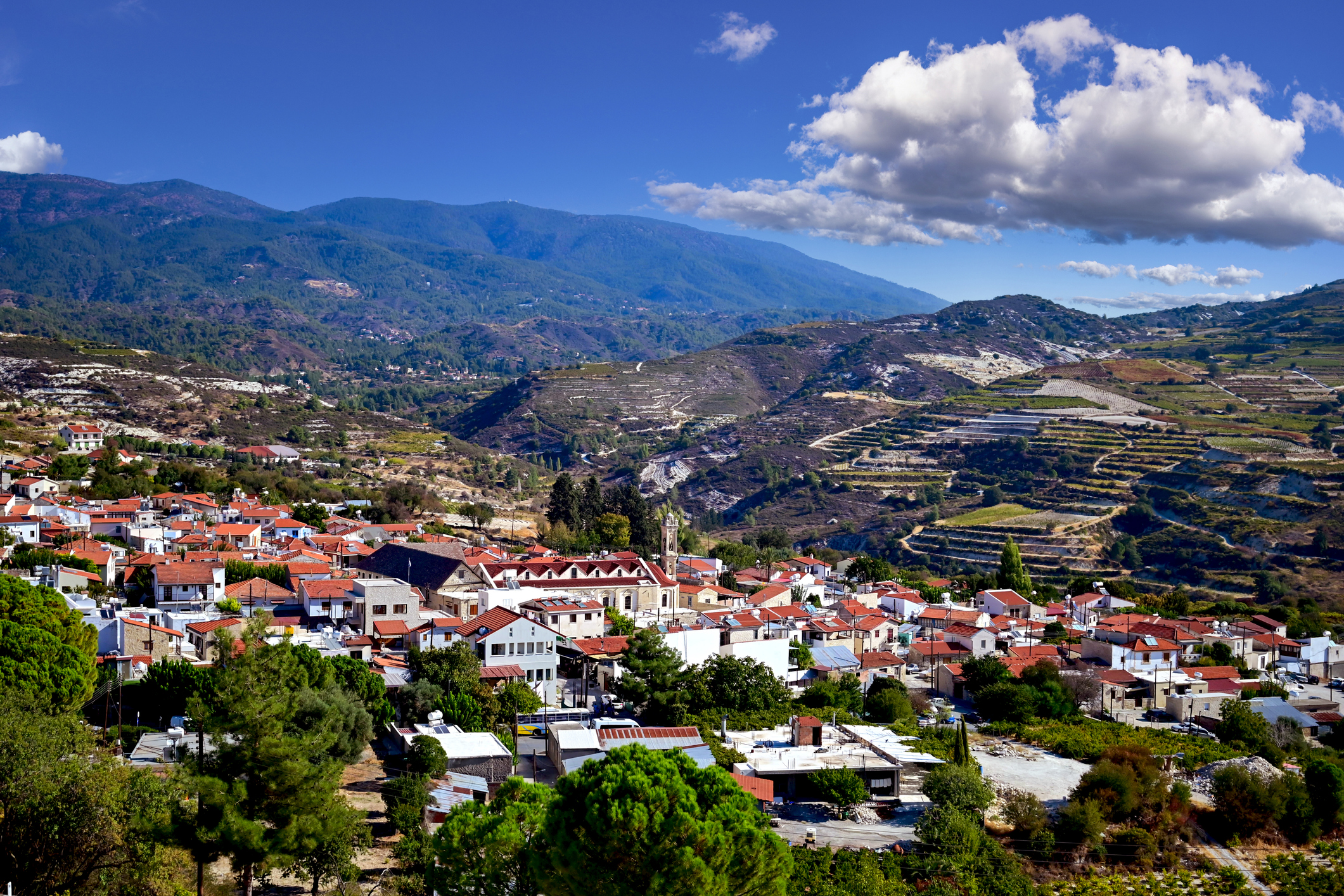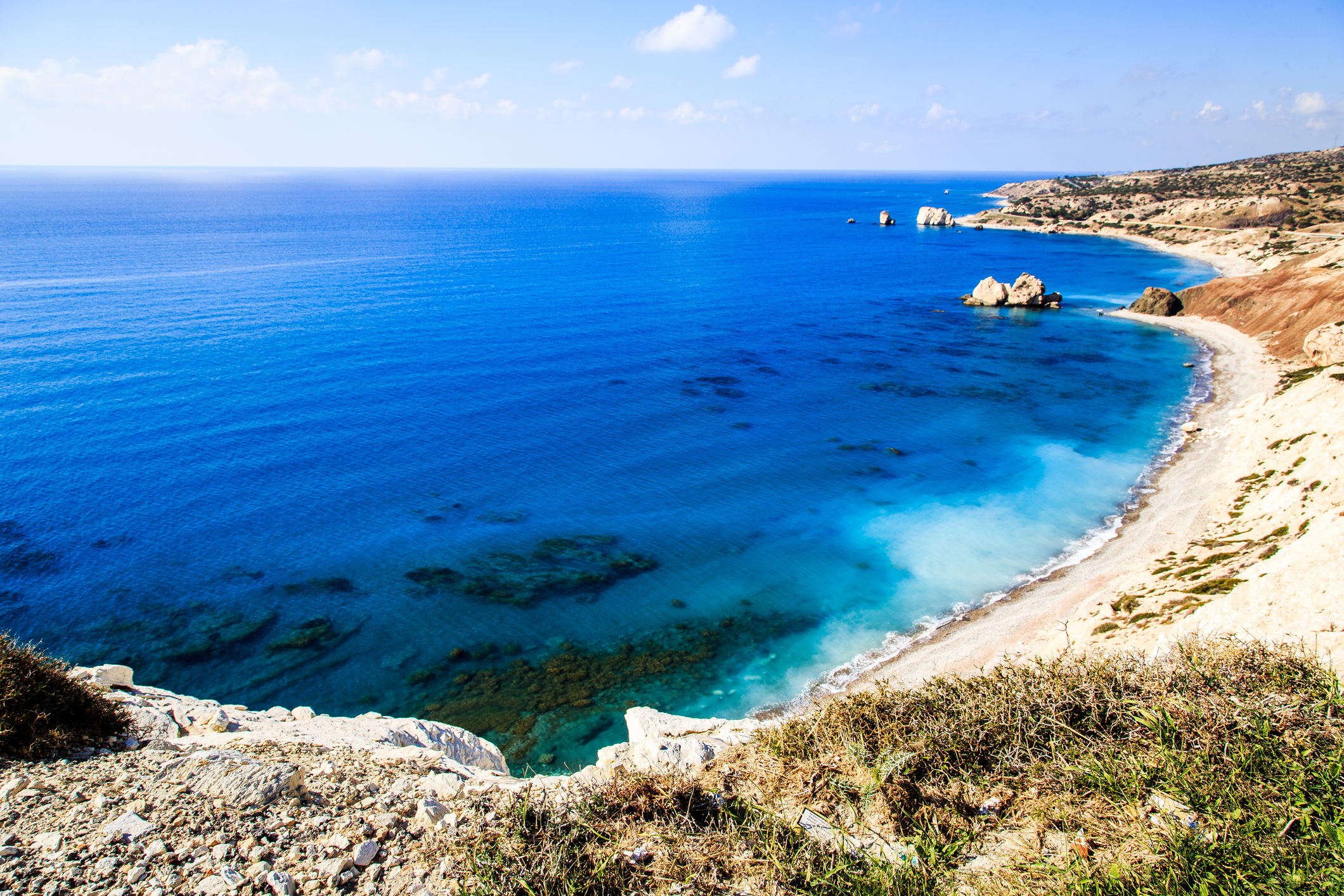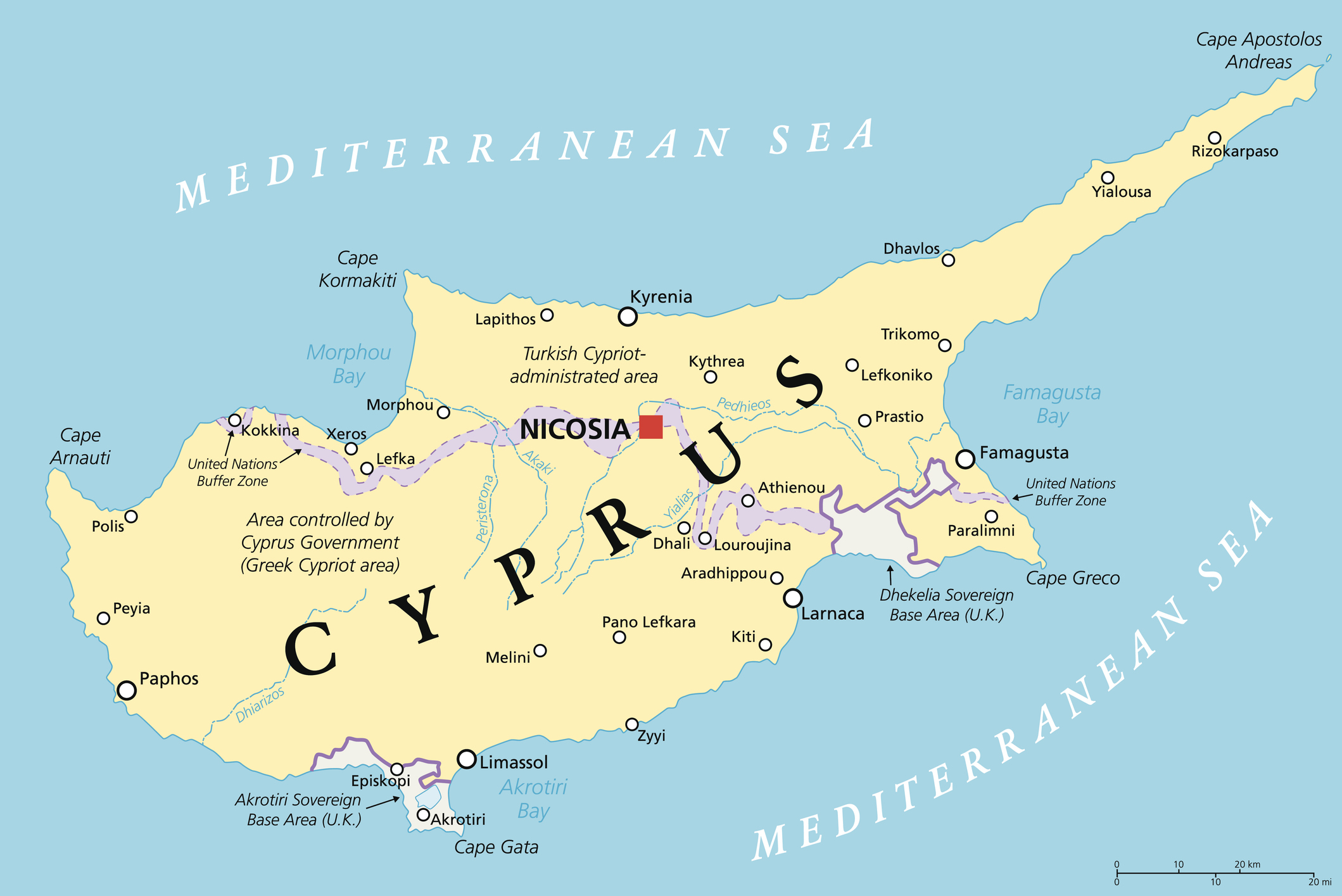Retire on This Island for Mediterranean Living on the Cheap
This independent nation has a lower cost of living and more visa options than many of its Mediterranean cousins.


Profit and prosper with the best of Kiplinger's advice on investing, taxes, retirement, personal finance and much more. Delivered daily. Enter your email in the box and click Sign Me Up.
You are now subscribed
Your newsletter sign-up was successful
Want to add more newsletters?

Delivered daily
Kiplinger Today
Profit and prosper with the best of Kiplinger's advice on investing, taxes, retirement, personal finance and much more delivered daily. Smart money moves start here.

Sent five days a week
Kiplinger A Step Ahead
Get practical help to make better financial decisions in your everyday life, from spending to savings on top deals.

Delivered daily
Kiplinger Closing Bell
Get today's biggest financial and investing headlines delivered to your inbox every day the U.S. stock market is open.

Sent twice a week
Kiplinger Adviser Intel
Financial pros across the country share best practices and fresh tactics to preserve and grow your wealth.

Delivered weekly
Kiplinger Tax Tips
Trim your federal and state tax bills with practical tax-planning and tax-cutting strategies.

Sent twice a week
Kiplinger Retirement Tips
Your twice-a-week guide to planning and enjoying a financially secure and richly rewarding retirement

Sent bimonthly.
Kiplinger Adviser Angle
Insights for advisers, wealth managers and other financial professionals.

Sent twice a week
Kiplinger Investing Weekly
Your twice-a-week roundup of promising stocks, funds, companies and industries you should consider, ones you should avoid, and why.

Sent weekly for six weeks
Kiplinger Invest for Retirement
Your step-by-step six-part series on how to invest for retirement, from devising a successful strategy to exactly which investments to choose.
Editor’s note: This article is part of an ongoing series on retiring abroad. To see all the articles in the series, jump to the end.
Located in the Mediterranean Sea, the island-nation of Cyprus is a European member state, though not a Schengen member, which allows for easy passage between European countries. Cyprus's outsider status is a lonely distinction that it shares only with Ireland. One need only look at the country on a map to see that things become more interesting, as Cyprus is tucked into such a far easterly corner of the Mediterranean that it lies to the south of Türkiye (Turkey), southeast of Greece, west of Syria, and north of Egypt. Thus, it is at the crossroads of Asia, the Middle East, Europe and Africa.
To further complicate matters, Cyprus encompasses disputed territory between Greece and Türkiye. Though it became an independent nation in 1960, Cyprus has a recent history that includes a coup by Greek Cypriots, an invasion by Türkiye (both in 1974), and the latter’s insistence (in 1983) that a separate region in the island’s north — the Turkish Republic of Northern Cyprus — belongs to it. A U.N. buffer zone occupies the border between “Turkish” Cyprus and the remaining two-thirds of the island (the Republic of Cyprus).
From just $107.88 $24.99 for Kiplinger Personal Finance
Become a smarter, better informed investor. Subscribe from just $107.88 $24.99, plus get up to 4 Special Issues

Sign up for Kiplinger’s Free Newsletters
Profit and prosper with the best of expert advice on investing, taxes, retirement, personal finance and more - straight to your e-mail.
Profit and prosper with the best of expert advice - straight to your e-mail.

Nicosia, the last divided capital of Europe (and the world), is part of the buffer zone. While it is considered safe to visit the Turkish Republic of Northern Cyprus, living there is not recommended. No other country, aside from Türkiye, recognizes the disputed region as legal or legitimate.
Despite this geopolitical tension, Cyprus is a peaceable nation, earning a strong Freedom House score of 92 out of 100 for free elections, press and other good governance indicators. By contrast, the U.S. score is only 84.
Cyprus is also a beautiful destination with a rich history and culture, a high standard of living, a solid economy and a Mediterranean climate that beckons vacationers, digital nomads, and retirees to its cities and beaches. With stunning turquoise waters and a famed coastline that ranges from calm and sandy to rocky and dramatic, Cyprus may bring to mind Sicily, Malta, or any number of Greek islands. The gastronomy of Cyprus is heavily in the Greek tradition (think meze).
Marios Konstantinou is a lawyer and partner at the George K. Konstantinou Law Firm in Limassol, Cyprus, which is a go-to resource for relocation and expat retirement guidance. “It’s part of our culture to welcome guests, to welcome foreigners,” he says, also noting the country’s safety and “300 days of sun.” Though Greek is the official EU language, English is widely spoken, he says; the currency is the euro.
Where to retire in Cyprus

Cyprus is small and easy to navigate: You can drive it from end to end in two hours (around 150 miles) via the coastal route. Driving is on the left, U.K.-style, and though the bus system is considered by some to be efficient, the verdict from Konstantinou is different: “Not very good. You need a car in Cyprus.” With wheels of your own, it shouldn’t be difficult or especially time-consuming to explore and decide where to live.
Konstantinou recommends living in coastal cities such as Limassol, Larnaca, or Paphos, citing the first two as the most walkable, while the city of Paphos has been designated as a UNESCO World Heritage Site for its history and ancient architecture. Larnarca and Paphos are home to busy international airports.
Limassol, where Konstantinou lives, has around 200,000 inhabitants and is located in the south. Konstantinou describes it as “developed” and the most likely place for expats to land.
Limassol is a modern city, but it features an evocative Old Town and a lively coastal tourist area from the Old Port to the Amathus area — the last is a long-lived settlement, dating from 1100 B.C., which contains the Temple of Aphrodite. Limassol is known for its calendar of public events, including a popular wine festival, which attests to Cyprus’s robust viniculture industry. The city boasts numerous beaches that carry a Blue Flag designation, denoting cleanliness and good environmental management. (The country as a whole has 76 Blue Flag beaches.)
Konstantinou says that a two-bedroom apartment in Limassol starts at around $1,200 a month, but a place in a building with a pool and other amenities will set you back around $2,000, or more. To see listings for sale or rent, check out DevelopersCyprus.
Visa and money matters in Cyprus
Americans understand the term “pink slip” as slang for getting fired, or a document that proves car ownership, but in Cyprus, the Pink Slip can be your gateway to retirement. The country has no formal retirement visa (or so-called golden visa), but once you’re in Cyprus, you can apply for a one-year Pink Slip: a temporary residence permit.
As a European member nation, Cyprus permits U.S. nationals to visit the country without a visa for 90 days within a 180-day period; you can exceed the 90 days once your Pink Slip application is in play. But Konstantinou says that his firm can complete the process in a month or 45 days, as long as the applicant is proactive: “It’s good to start collecting your documents — for example, birth certificates — before you come to Cyprus,” he says.
The Pink Slip can be renewed annually for five years, at which point you can apply for long-term resident status. After a total of eight years in-country, you can apply for citizenship. Therefore, even though the name of the visa sounds less secure than “retirement visa,” Cyprus is more open to citizenship — the ultimate badge of security — than many other countries.
In order to gain a Pink Slip, the expat retire must show annual foreign income of 24,000 euros a year (after taxes). That sum gives you an indication of the affordability of Cyprus; a single person might not even spend that much to live well in the country. A spouse bumps up the requirement to 28,800 euros; a child brings the total to 32,400 euros. The funds must be transferred to a traditional brick-and-mortar bank in Cyprus.
Note that the visa holder cannot work in Cyprus and cannot leave the country for more than three months continuously to remain in good standing. The good news is that Cyprus does allow the visa holder to work remotely for other countries, unlike Spain, for example. So those inspired to relocate to Cyprus can show either passive or active income, or a combination of the two.

Other requirements and visa types
In addition, the visa applicant must demonstrate proof of housing — either a rental contract or the purchase of a home — and private international or Cyprus health insurance (the latter costs around $200 a month) is mandatory. However, somewhat disconcertingly, you must meet the country’s definition of “health”: Once in-country, you must show, by blood test or chest X-ray, the absence of hepatitis B and C, HIV, syphilis, and tuberculosis.
If you think that the Pink Slip can apply to remote freelance workers who are not even contemplating retirement, you would be correct. That said, for retirees who wish to show relocate solely through passive income — a pension, other retirement account(s), and rental income are on the menu — the Category F Visa is a popular option. An annual income of around $11,000 is the price of entry — that’s a far easier bar to clear than the Pink Slip income requirement.
Cyprus levies a 5% tax on passive income; dividends carry a lower tax, Konstantinou says. A portion of Social Security income is exempt, but it may not be possible to completely avoid double taxation on Social Security. That’s why it is advisable to use a Cyprus-based law firm that has expertise in such matters.
Finally, on the other (pricier) end of the spectrum is a residency by investment visa, which is attainable for a 300,000-euro stake in property or shares — plus a showing of an annual income of 50,000 euros. That’s a six-month process. For this visa, “you are not allowed to work as an employee,” Konstantinou says, but it is permissible to open your own business.

Retiring in Cyprus: The Takeaway
Health, longevity, education, affordability: Cyprus ranks highly in the combined criteria that matter to the analysts who come up with the Human Development Index. It even notches one position higher than Greece, the country it so resembles.
Notwithstanding the invasive medical hurdles one must surmount in order to relocate in Cyprus, the country is welcoming, as demonstrated by the range of visas and reasonable requirements of residence there. And being an EU member state carries a litany of advantages, from a stable currency and sense of security, to an increasingly comfortable environment for the LGBT community — if it’s not exactly in line with wider European attitudes and civil rights, it’s come a long way.
For example, Cyprus offers civil unions (not gay marriage) and a ban on discrimination in employment, if not in other areas. Still, Cyprus codified employment protections on the basis of sexual orientation a full decade before the U.S. did. The country seems to be evolving quickly in terms of such matters: Conversion therapy has been banned since 2023.
More on where to retire abroad
- Retire in Japan: It Ain’t Easy, Unless You’re Special
- Retire in Spain for Culture, Cuisine and Coastal Bliss
- Retire in Ireland for Lush, Green Landscapes and Bustling Cities
- Retire in Malaysia for Affordable Luxury
- Retire in Finland and Live the Nordic Dream
- Retire in Ecuador for an Affordable, Rich Life
- Retire in Costa Rica for Expat Heaven
- Retire in the Canary Islands for Beaches and Natural Beauty
- Retire in Belize for Stunning Natural Beauty and Culture
- Retire in Malta for Quiet Coastal Perfection
- Retire in New Zealand for Lush Landscapes and a Relaxed Vibe
- Retire in the UK for Culture, History and Location
- Retire in Italy for Culture and Beauty
- Retire in Greece for Relaxed Living With a Cinematic Backdrop
- Retire in Thailand, Where 'The White Lotus' Was Filmed
- Retire in Mexico: Get a Lower Cost of Living Near the US
- Retire in Portugal as a US Retiree
- Retire in the Dominican Republic
- Retire in Panama for Stability and Charm
- Retire in Brazil: It's More Than Carnival, Coffee and Copacabana
- Retire 2025: Puerto Rico
Profit and prosper with the best of Kiplinger's advice on investing, taxes, retirement, personal finance and much more. Delivered daily. Enter your email in the box and click Sign Me Up.

Drew Limsky joined Kiplinger Digital as a freelance retirement writer because he believes that every day offers opportunities to make better financial decisions, and that it’s never too late to learn how to enhance your financial position and lifestyle. Drew is the former editor of Lexus magazine, Cadillac magazine, South Florida Business & Wealth, Business Jet Traveler, Interiors South Florida, and Mariner (for Holland America). Drew’s writing credits include The Wall Street Journal, New York Times, LA Times, Washington Post, Boston Globe, Yahoo, Worth, AD, Robb Report, Metropolis, Men’s Journal, and Business Insider. An Emory grad, Drew earned his JD and PhD at NYU, and lives in Miami Beach, Brooklyn, and Cape Cod.
-
 Quiz: Do You Know How to Avoid the "Medigap Trap?"
Quiz: Do You Know How to Avoid the "Medigap Trap?"Quiz Test your basic knowledge of the "Medigap Trap" in our quick quiz.
-
 5 Top Tax-Efficient Mutual Funds for Smarter Investing
5 Top Tax-Efficient Mutual Funds for Smarter InvestingMutual funds are many things, but "tax-friendly" usually isn't one of them. These are the exceptions.
-
 AI Sparks Existential Crisis for Software Stocks
AI Sparks Existential Crisis for Software StocksThe Kiplinger Letter Fears that SaaS subscription software could be rendered obsolete by artificial intelligence make investors jittery.
-
 Quiz: Do You Know How to Avoid the 'Medigap Trap?'
Quiz: Do You Know How to Avoid the 'Medigap Trap?'Quiz Test your basic knowledge of the "Medigap Trap" in our quick quiz.
-
 We Retired at 62 With $6.1 Million. My Wife Wants to Make Large Donations, but I Want to Travel and Buy a Lake House.
We Retired at 62 With $6.1 Million. My Wife Wants to Make Large Donations, but I Want to Travel and Buy a Lake House.We are 62 and finally retired after decades of hard work. I see the lakehouse as an investment in our happiness.
-
 Social Security Break-Even Math Is Helpful, But Don't Let It Dictate When You'll File
Social Security Break-Even Math Is Helpful, But Don't Let It Dictate When You'll FileYour Social Security break-even age tells you how long you'd need to live for delaying to pay off, but shouldn't be the sole basis for deciding when to claim.
-
 I'm an Opportunity Zone Pro: This Is How to Deliver Roth-Like Tax-Free Growth (Without Contribution Limits)
I'm an Opportunity Zone Pro: This Is How to Deliver Roth-Like Tax-Free Growth (Without Contribution Limits)Investors who combine Roth IRAs, the gold standard of tax-free savings, with qualified opportunity funds could enjoy decades of tax-free growth.
-
 I'm a Wealth Adviser Obsessed With Mahjong: Here Are 8 Ways It Can Teach Us How to Manage Our Money
I'm a Wealth Adviser Obsessed With Mahjong: Here Are 8 Ways It Can Teach Us How to Manage Our MoneyThis increasingly popular Chinese game can teach us not only how to help manage our money but also how important it is to connect with other people.
-
 Global Uncertainty Has Investors Running Scared: This Is How Advisers Can Reassure Them
Global Uncertainty Has Investors Running Scared: This Is How Advisers Can Reassure ThemHow can advisers reassure clients nervous about their plans in an increasingly complex and rapidly changing world? This conversational framework provides the key.
-
 5 Ronald Reagan Quotes Retirees Should Live By
5 Ronald Reagan Quotes Retirees Should Live ByThe Nation's 40th President's wit and wisdom can help retirees navigate their financial and personal journey with confidence.
-
 I'm a Real Estate Investing Pro: This Is How to Use 1031 Exchanges to Scale Up Your Real Estate Empire
I'm a Real Estate Investing Pro: This Is How to Use 1031 Exchanges to Scale Up Your Real Estate EmpireSmall rental properties can be excellent investments, but you can use 1031 exchanges to transition to commercial real estate for bigger wealth-building.